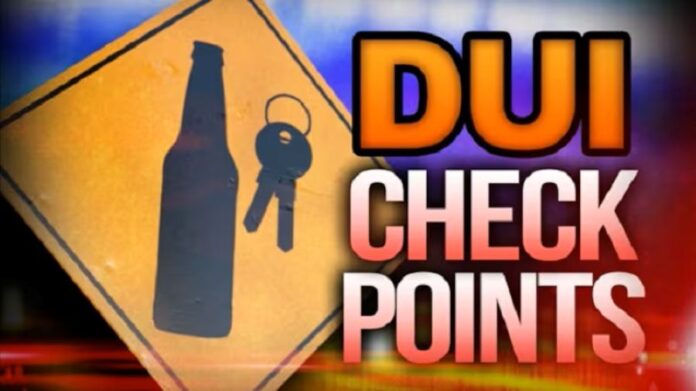Driving under the influence (DUI) is a serious offense that can have lasting consequences on a person’s life. Often, a simple mistake — such as choosing to drive after consuming alcohol or certain drugs — can lead to a DUI charge. Many individuals don’t intend to break the law, but a momentary lapse in judgment behind the wheel can result in legal trouble, financial burdens, and even damage to one’s personal and professional reputation.
One of the most common questions people face after being charged with a DUI is how long the offense will remain on their driving record. This concern is understandable, as a DUI conviction can affect everything from insurance rates to employment opportunities. The duration that a DUI stays on a record varies depending on state laws, the specifics of the offense, and whether it is a first-time or repeat violation.
Understanding the implications of a DUI and how long it remains on your record is crucial for anyone facing such charges or hoping to avoid them in the future. This knowledge can help individuals make informed decisions about their actions and better navigate the legal and personal challenges that follow a DUI conviction.
How long until a dui goes away? Let’s keep going to find out.
How Long Will a DUI Stay on Your Record?
The length of time a DUI stays on your record depends largely on the state where the offense occurred, as laws vary significantly across the U.S. In some states, a DUI can remain on your driving record for as little as five years, while in others, it may stay indefinitely or for much longer periods.
For example, certain states keep DUI convictions on your driving record permanently, which can continue to impact your insurance rates and employment prospects for many years. Other states may allow for the DUI to be removed or expunged after a set period, often around five to ten years, especially if no further offenses occur during that time.
In Missouri, a DUI (referred to as Driving While Intoxicated or DWI) typically stays on your driving record for 10 years from the date of the offense. During this period, the conviction can affect your insurance rates, employment opportunities, and may result in license suspension or other penalties.
However, the conviction itself remains part of your criminal record permanently unless you take legal steps such as expungement, which can be complex and is not always guaranteed. Repeat offenses within this 10-year window can lead to harsher penalties.
Missouri’s laws are designed to balance public safety with the opportunity for rehabilitation, but a DWI conviction is serious and can have long-lasting consequences on your record and life.
Additionally, the nature of the DUI — whether it is a first-time offense, a repeat violation, or involves aggravating factors such as injury or high blood alcohol content — can influence how long it remains on your record. Felony DUI convictions, for instance, typically stay on your record longer than misdemeanor offenses. Because of these variations, it’s important to check the specific laws in your state to understand how long a DUI will affect your driving and criminal records.
Why Does It Matter if a DUI Is on Your Record?
A DUI on your record matters profoundly because it can affect nearly every aspect of your life, from financial costs to personal and professional opportunities. The presence of a DUI conviction on your driving or criminal record carries consequences that extend far beyond the initial legal penalties, often influencing your future in ways many do not anticipate.
Legal and Financial Consequences
First and foremost, a DUI conviction usually results in immediate legal penalties such as fines, license suspension, mandatory alcohol education programs, and sometimes jail time. However, the impact doesn’t end there. Insurance companies view a DUI as a significant risk factor, leading to substantially increased premiums—sometimes doubling or tripling your rates. This financial burden can last for years, as insurers typically review your driving record for at least five to ten years. In some cases, insurers may even refuse coverage altogether, making it difficult and expensive to maintain auto insurance.
Employment Implications
A DUI conviction can also affect your employment prospects. Many employers conduct background checks, and a DUI on your criminal record may raise concerns about your judgment and reliability, especially for jobs that require driving or operating heavy machinery. Certain professions, such as commercial driving, law enforcement, education, and healthcare, may have strict policies that disqualify candidates with DUI convictions. Even if your current job isn’t directly impacted, the stigma associated with a DUI can limit career advancement or professional licensing opportunities.
Personal and Social Impact
Beyond legal and financial effects, a DUI conviction can damage your personal reputation. Friends, family, and community members may view you differently, and the social stigma can lead to feelings of shame or isolation. Additionally, if you need to apply for housing or loans, a DUI on your record can complicate these processes, as landlords and lenders often consider criminal history in their decisions.
Long-Term Consequences and Recovery
Because a DUI can remain on your driving record for many years and your criminal record permanently, it’s important to understand that the consequences are long-lasting. While some states allow expungement or record sealing under certain conditions, these processes can be complicated and are not always available. Consulting a legal professional can help you explore options to mitigate the impact of a DUI on your record.
Remember, having a DUI on your record matters because it affects your finances, employment, personal relationships, and overall reputation for years to come. Understanding these consequences underscores the importance of responsible decision-making behind the wheel and highlights the need to address a DUI conviction thoughtfully to minimize its long-term effects.
Can an Attorney Get a DUI Charge Removed or Dismissed?
Yes, an attorney can often help get a DUI charge reduced, dismissed, or in some cases, removed from your record, depending on the circumstances of your case. While a DUI is a serious offense, there are legal strategies and defenses that skilled DUI defense attorneys use to challenge the charges and potentially lessen their impact.
Grounds for Dismissal or Reduction
One of the most common reasons a DUI charge might be dismissed is if the officer violated your constitutional rights during the traffic stop or arrest. For example, if the stop was made without reasonable suspicion or probable cause, or if proper procedures were not followed in administering breathalyzer or field sobriety tests, an attorney can file motions to suppress the evidence obtained. If key evidence is excluded, the prosecution’s case may weaken significantly, leading to dismissal or reduction of charges.
Additionally, technical errors such as faulty or improperly calibrated breathalyzer machines, contamination of blood samples, or mishandling of evidence can also provide grounds for challenging the DUI charge. An experienced lawyer knows how to scrutinize the prosecution’s evidence and identify these weaknesses.
Negotiation and Diversion Programs
Even when the evidence is strong, an attorney can negotiate with prosecutors to reduce DUI charges to lesser offenses, such as reckless driving, which carry less severe penalties. In some cases, first-time offenders may be eligible for diversion or deferred judgment programs, which allow them to avoid a conviction by completing certain requirements like attending alcohol education classes, community service, or probation. Successful completion of these programs can sometimes lead to dismissal of the charge.
Impact of Medical Conditions and Other Factors
Certain medical conditions, such as diabetes or hypoglycemia, can cause symptoms that mimic intoxication or affect breathalyzer results. Mouthwash or other substances containing alcohol can also cause false positives. A knowledgeable attorney will investigate these factors and present them as part of your defense.
Limitations and Realistic Expectations
It’s important to understand that not all DUI charges can be dismissed or removed, especially if the evidence is strong and the offense is severe or a repeat violation. However, having an attorney increases your chances of obtaining a favorable outcome by ensuring your rights are protected, challenging improper evidence, and negotiating on your behalf.
While an attorney cannot guarantee a DUI charge will be dismissed, they can use various legal strategies to challenge the prosecution’s case, seek reductions, or explore diversion options. A DUI charge does not define you as a bad person; it simply means you made a mistake. Many people find themselves facing a DUI due to a momentary lapse in judgment, not because of who they are. It’s important to recognize this distinction and avoid letting guilt or shame overwhelm you. What truly matters is how you respond moving forward. Taking responsibility and actively working to mitigate the long-term effects of a DUI can make a significant difference in your future. This might include seeking legal advice, completing court-ordered programs, and making lifestyle changes to prevent repeat offenses.
By addressing the situation head-on and following the right steps, you can rebuild your reputation, protect your record, and move past this challenge. Remember, a single mistake doesn’t define your character. Your actions afterward do.











